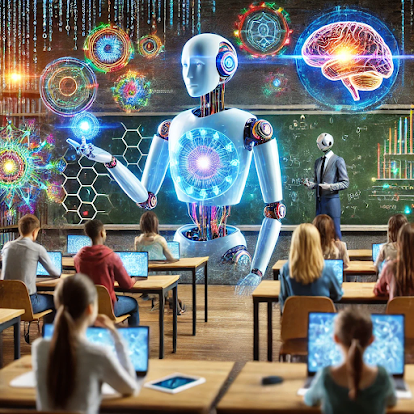The integration of Artificial Intelligence (AI) into the education sector is poised for remarkable growth, with projections indicating an increase of USD 2.32 billion between 2024 and 2028, reflecting a compound annual growth rate (CAGR) of 52.65%.
This surge is primarily driven by the escalating demand for AI-powered personalized learning experiences.
Key Drivers of Growth
Personalized Learning Paths: AI facilitates the creation of customized educational journeys tailored to individual student needs, enhancing engagement and improving learning outcomes. This personalized approach is a significant factor propelling market expansion.
Intelligent Tutoring Systems (ITS): The adoption of ITS, which leverage AI to provide real-time, adaptive feedback and support, is on the rise. These systems emulate one-on-one tutoring experiences, thereby enriching the educational process.
AI Applications in Education: Beyond personalized learning, AI is being utilized for administrative automation, predictive analytics to identify at-risk students, and the development of intelligent content, all contributing to its growing presence in education.
Emerging Trends
Chatbot Integration: Educational institutions are increasingly deploying AI-driven chatbots to assist students with queries, provide academic support, and streamline administrative tasks, thereby enhancing operational efficiency.
Crowd-Sourced Tutoring: Platforms utilizing AI to connect students with peer tutors are gaining traction, promoting collaborative learning and providing accessible educational support.
Content Analytics: AI-powered tools are being employed to analyze educational content and student interactions, offering insights that inform curriculum development and teaching strategies.
Regional Insights
North America is anticipated to lead the AI in education market, accounting for approximately 43% of global growth during the forecast period. This leadership is attributed to advanced technological infrastructure and significant investments in educational technologies.
Challenges
Despite its potential, the high costs associated with implementing AI solutions pose challenges for widespread adoption, particularly in underfunded educational institutions.
The projected growth of AI in the education sector underscores a transformative shift towards more personalized, efficient, and effective learning environments. As AI technologies continue to evolve, they offer promising avenues to enhance educational experiences and outcomes across diverse learning communities.
